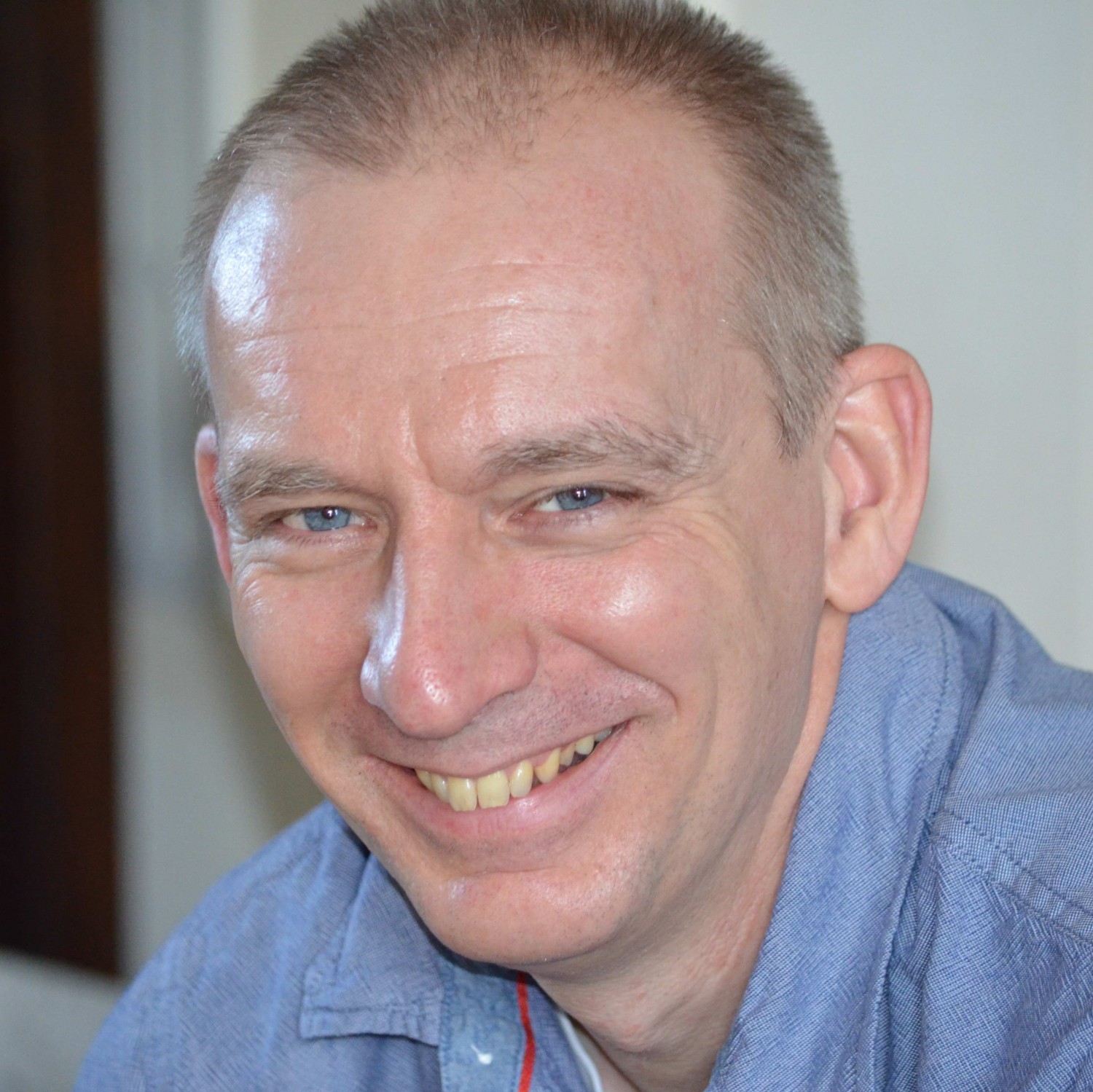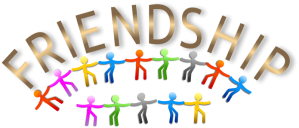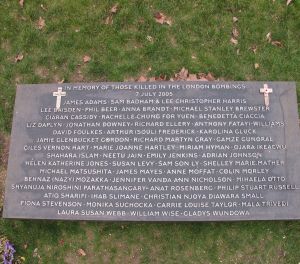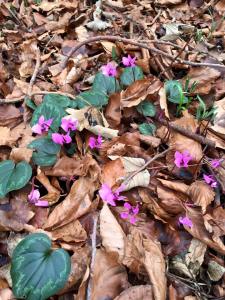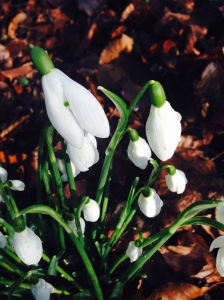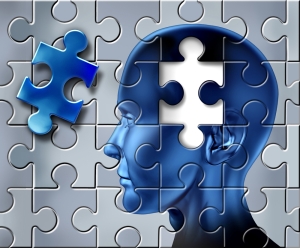My good friend and fellow blogger Karen Hobbs (https://quarterlifecancer.com) is barking mad! Diagnosed with cancer at the age of 24 she has made a remarkable recovery through much chemo, surgery and an indomitable spirit. Sounds like any other cancer patients story? Think again – here is why. A few weeks ago I attended Karen’s one woman show “Tumour Has It’. I cried with laughter. I cried with sadness. I cried with empathy for her parents. Then I laughed some more. “Irreverent”could be Karen’s middle name. Karen has used her talents do talks with the Eve Appeal, been featured in local and national media and continues to raise awareness around cervical cancer and associated challenges. All at once funny, inspiring and thought-provoking, Karen’s ability to laugh at her cancer while not detracting from the serious issues associated with a cancer that is largely preventable, and highly responsive to treatment when caught early, is honest, hilarious and nothing short of courageous.
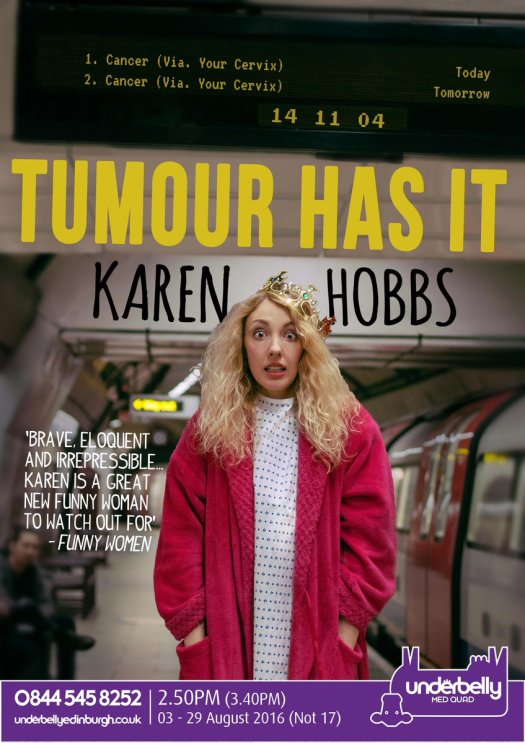
A born actress and comedienne Karen has now gone completely loopy by deciding to take her one woman show to the Edinburgh fringe. Is the fringe ready for vagina humour? Is the fringe ready for Karen Hobbs? Well I guess we will find out soon! It’s a brave move by Karen, and underscores her absolute commitment to raise awareness about cervical cancer and the need for screening and for the de-stigmatisation of sexual health issues. Did you know that 22% of women in the UK do not attend their cervical smear appointments and that 49% of women are too embarrassed to go to their doctor if they have a “problem down below”?! Yes, it’s true, in the supposedly enlightened 21st century women are somehow discouraged to take their sexual health seriously!
Of course there is a major problem with giving up your full-time job and taking on the fringe. It’s that other “dirty” word. Money! Lucre! Dosh! It costs around £7,000 to stage a show of this nature at the fringe. Karen doesn’t have that kind of money, but she’s risking it anyway! We hope she will sell enough tickets to cover some costs, but most shows don’t.
I have no doubt that Karen is a real star in the making – so if you’ve read this far I’d like to try to convince you to become part of the “crowd” that is crowd-funding Karen through this experience. It is probably best now to hear from Karen herself, so please take a look at her crowd funding page below, complete with funny video (with a couple of cameo’s of yours truly saying “penis” and “vagina” – it’s go to be worth viewing for that alone right?!). Once you’ve watched the video, please don’t just think “yeah that was funny” or “what a great cause, good luck Karen” – just click the link that says “Pledge” and join the rest of the crowd funders – every little helps, so maybe £5/$5 (which let’s face it are close to being the same value these days!) as a minimum donation. For backers outside of the UK Karen might not manage those personal appearance for pledges of larger amounts (unless you fund the trip!) 🙂
On average my blog gets two hundred hits, so at a minimum if you’re all generous we could raise another £1,000 to help get Karen’s show on the road, hopefully the associated press coverage will get the messages out there – I know I’m already “nagging” the ladies in my life to make and keep their cervical screening appointments, the more women that do the better, and the greater the chance for catching these cancers early before they get to ruin lives. Anyway, without further ado, here is what Karen says:
http://www.crowdfunder.co.uk/karen-hobbs-tumour-has-it/
